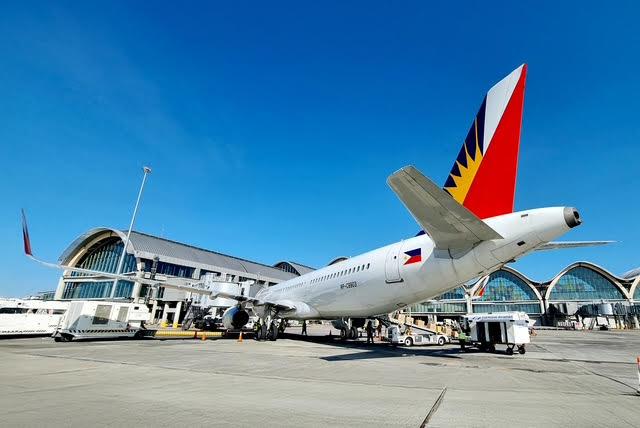Tourism is one of the world’s largest industries most affected by the COVID-19 pandemic and every other country has seen the varying degrees of decimation to its tourism sector.
Whether it is Italy, where tourism accounts for 6% of the country’s GDP or Palau where it generates almost 90% of all exports, countries are struggling to rebuild their respective tourism industries.
The ongoing global crisis has put 100 to 120 million jobs at risk and according to a United Nations policy brief, the tourism industry is facing a $1 trillion loss as international tourist numbers continue its sharp decline. The UN report also said that the tourism industry had grown faster than the world economy overall for 10 years straight, only to be stopped in its tracks by the coronavirus pandemic.
In the Philippines, the Department of Tourism (DOT) and various stakeholders in the country’s tourism industry are thankful that despite initial resistance from some congressmen, the Bicameral Conference Committee approved the allocation of 10 billion pesos for the tourism industry under the Bayanihan To Recover As One or the Bayanihan 2 Bill.
“The recognition of the tourism sector by the Senate and House of Representatives, in the Bayanihan Act 2 measures, ensures the survival of our MSMEs since 99.9% of the 144,640 establishments in accommodation and food service activities are considered micro, small and medium, according to 2018 data from the Philippine Statistics Authority (PSA),” a DOT statement read.
In terms of employment, 95.8% of the 921,292 workers in accommodation and food service activities, covered by the PSA data, are also MSMEs. According to 2019 data, tourism generated 7% of global trade and employed one in every ten people globally.
The stimulus package will help ease the economic difficulties of the micro and small players of the industry and will help them “to get back on our feet soon,” according to Jojo Clemente III, president of the Tourism Congress of the Philippines (TCP).
The funds for loans and credit facilities to tourism MSMEs from the Bayanihan Act 2 will be administered by Government Financial Institutions and independent government agencies such as the Small Business and Guaranty and Finance Corporation. The DOT will not be involved with the dispensation of the funds to either party.
“The allocation will help the private sector rehabilitate their facilities and upgrade their businesses to conform with the current health and safety standards set by the authorities and more importantly, help their employees and the families that depend on them financially,” said Joebert Opulencia, owner of Orientours Co., Ltd, a tour operator based in New York.
Opulencia has been working with industry players in the Philippines since 1986 and he is hopeful that with this lifeline, they will be able to continue promoting the country and bring back the much-needed tourists.
“Only few realize the hard work put in by the private sector in promoting the country. From the travelling to far away cities, working even during unholy hours, and the training they give to their staff just to prove to the world that indeed ‘it’s more fun in the Philippines,’” he said.
DOT will continue to work with the private sector and various local government units (LGUs) in carving the path to revive tourism with proper health and safety protocols in place as they continue to be “optimistic that collectively the industry can weather this challenge, and come out stronger and better.”
The DOT statement further said that they look forward as well to working with the Department of Labor and Employment (DOLE) for the program they will implement for the displaced and unemployed tourism workers.
With the government’s support through the Bayanihan 2, DOT added that they will continue to handhold its stakeholders towards recovery, and carry out the plans and programs under the Tourism Response and Recovery Plan (TRRP) in its full capacity.
TCP, along with over 50 national and regional associations representing various tourism sectors, called on the country’s lawmakers last week to approve the rescue package that the Senate version of the Bayanihan 2 bill has provided. They are hoping that the P10 billion credit facility would allow them to quickly recover from the COVID-19 pandemic.
The House of Representatives version initially reallocated the amount to infrastructure projects under the Tourism Infrastructure and Enterprise Zone Authority (TIEZA) to help the industry’s recovery.
“The tourism industry is made up of 70% MSMEs and have been severely affected by the COVID-19 pandemic. Travel restrictions for most of the first half of this year have pushed us to the brink of bankruptcy and will surely nudge us over the edge in the coming weeks with no intervention by the government,” an initial TCP statement said.
TCP is composed of small tour operators, travel agencies, transport operators, resorts and hotels, restaurants, dive shops, suppliers and service providers employing the drivers, waiters, booking agents, tour guides, dive masters and other workers who turn the wheels of the entire industry.
“We are the sector that gave employment to 5.7 million workers and contributed close to 13 percent of the country’s gross domestic product,” the statement further read.
To date, an estimated 4.8 million formal and informal tourism industry workers have been affected by the various levels of community quarantines in the Philippines.
Also according to PSA data, the tourism industry in the country benefitted some 5.7 million workers and contributed 12.7% of the country’s economic output, as expressed in the gross domestic product in 2019.





